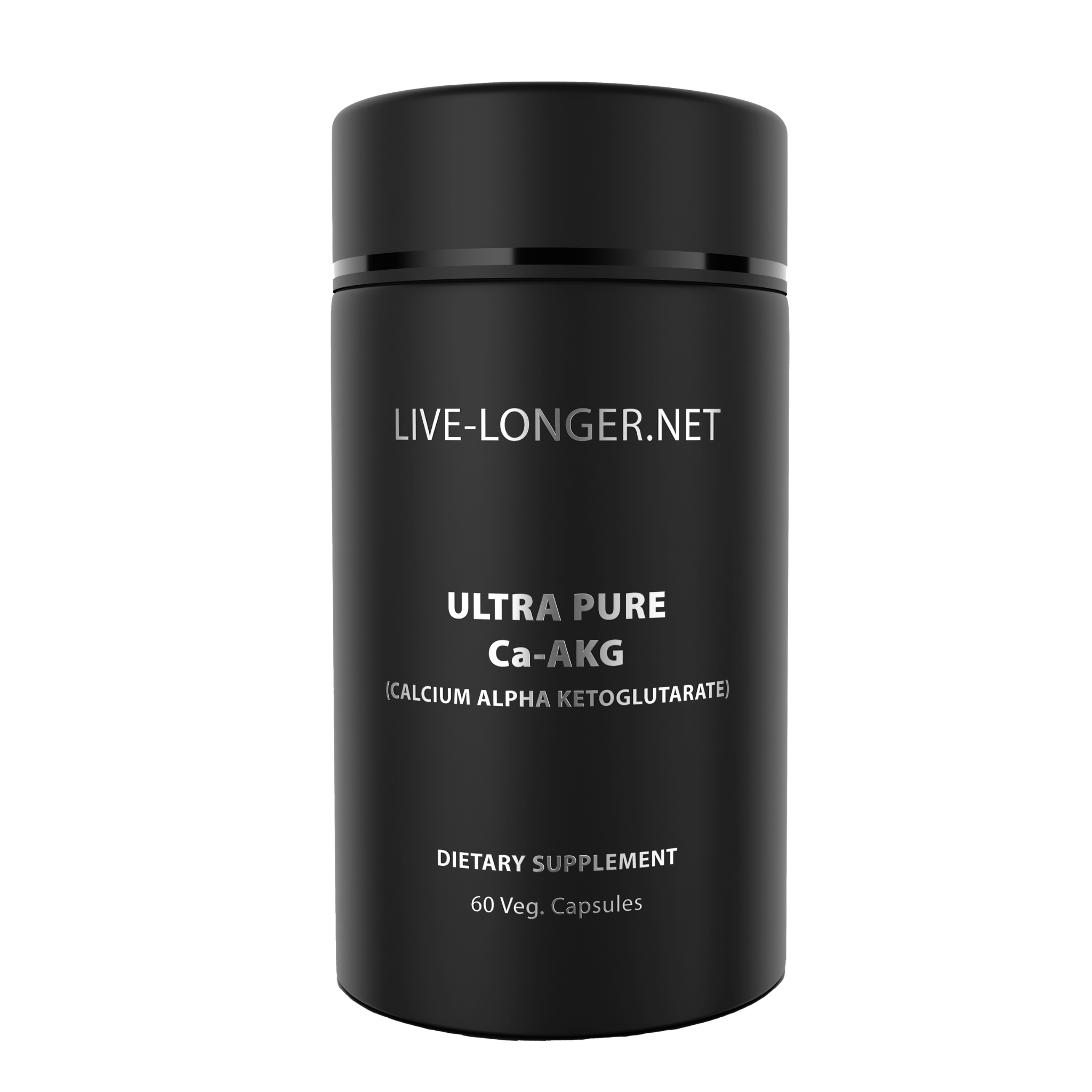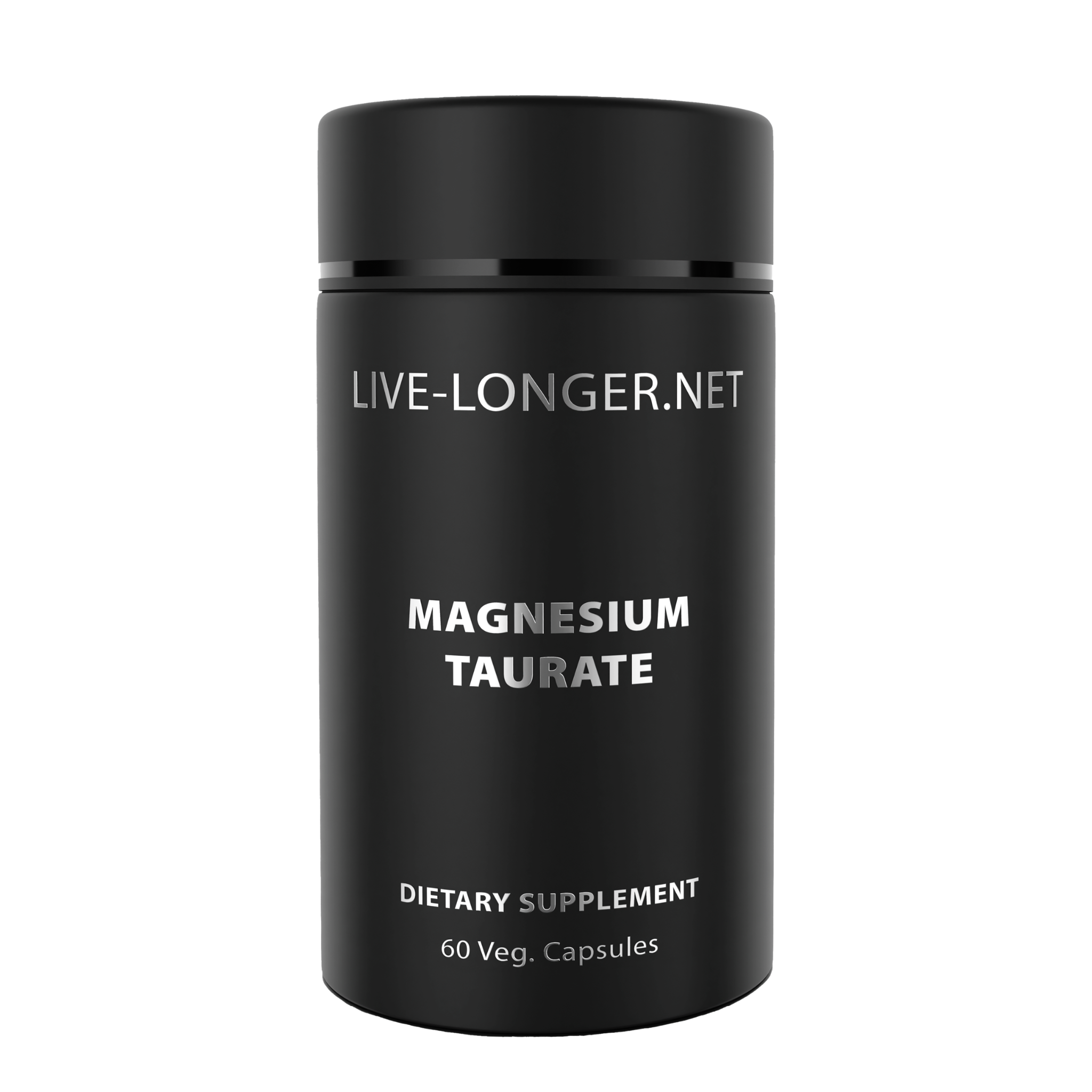If you enter "superfoods" in the Google search bar, the top foods you will see are kale, berries, green tea, etc.
Ever wondered what makes them "superfoods?"
Well, it is because all of these contain something super special — quercetin.
It is a natural compound found in many fruits and vegetables. It's like a magic ingredient that helps us live longer, keeps our hearts healthy, boosts our energy, strengthens our immune system, and more!
That's why many experts believe eating foods that have quercetin regularly is a good idea. However, one problem with quercetin obtained from foods is its low bioavailability. Only less than 10% of the ingested quercetin is absorbed by the body. That's where supplements come in! The best quercetin supplements enhance the absorption of quercetin and provide various health benefits.
Let's explore several benefits of quercetin, why you should take the best quercetin supplements, and how to find the best quercetin supplement.
What Is Quercetin?
Quercetin is a flavonoid found in fruits, veggies, and flowers. Flavonoids are the chemicals found in plants that play a role as antioxidants.
So technically, quercetin is a "Plant Pigment."
The most well-known benefit of quercetin is its ability to fight off inflammation caused by bacteria or viruses.
The best Quercetin supplement also slows down the aging process by combating the damage caused by an unhealthy diet, persistent stress, lack of sleep, and exposure to harmful chemicals.
How Does Quercetin Benefit Us?
Quercetin has innumerable benefits for our bodies. However, the prime mechanism behind its benefits is its anti-inflammatory properties.
Top Benefits of the Best Quercetin Supplement
Here are some noteworthy benefits of the best Quercetin supplement:
Anti-inflammatory Properties
Inflammation is the body's normal reaction to any harmful substance, toxin, or microbe. However, exaggerated inflammation can cause damage to the body's organs.
Current research highlights chronic (persistent) inflammation as the underlying cause of many diseases, including heart disease, cancer, cognitive decline, certain mental health conditions, and autoimmune disorders [1].
Healthcare professionals and patients have currently reported quercetin's effectiveness in addressing various inflammation-related conditions, such as allergies, cognitive decline, gout, and skin ailments such as dermatitis and hives [2].
Anti-Aging Role
Persistent inflammation characterizes the process of aging. This ongoing inflammation speeds up the aging of immune cells, leading to a weakened immune system and an inability to remove aging cells and inflammatory substances. This sets off a harmful cycle of inflammation and aging.
Quercetin aids in neutralizing harmful particles in the body called free radicals, which disrupt cell function by damaging cell membranes, altering DNA function, promoting cell mutations, and causing the death of healthy cells [3]. It also diminishes the activity of inflammatory genes like interleukin. Therefore, you must invest your energy in searching for the best quercetin supplement.
Protects Heart Health
Heart diseases are primarily caused by an imbalance between the demand and supply of the blood. Inadequate blood supply results in oxidative stress in the heart tissue.
Quercetin boasts antioxidant properties that make it an effective remedy for people with heart diseases [4].
Taking the best Quercetin supplement lowers your chances of acquiring heart and blood vessel problems, like cardiovascular disease and diabetes. Animal studies suggest that quercetin can also lower the risk of atherosclerosis, a condition where arteries get blocked [5].
Maintains Blood Pressure
Quercetin also helps keep cholesterol levels in check and regulate blood pressure. This is why people who eat a lot of fruits and veggies tend to have healthier hearts.
In 2022, a clinical study was conducted among 72 patients diagnosed with stage-2 hypertension. They were divided into two groups: one group was taking quercetin with basic antihypertensive therapy, while the other was only taking the basic therapy. It was concluded that the group taking quercetin had reduced blood nitrates and lipid levels, reducing hypertension complications [6].
Another meta-analysis looked into how quercetin affects blood pressure regulation. This analysis involved seven trials with a total of 587 participants. The findings indicated that taking the best quercetin supplements lowered blood pressure, especially among those who consumed Quercetin doses of 500 milligrams (mg) per day or more [7].
Flights off Cancer
Researchers from Boston University found that taking quercetin and other antioxidants could lower the risk of cancer [8].
The best Quercetin supplement seems to have special properties that might help prevent cancer and slow down the growth of cancer cells. It could also make typical cancer treatments like radiation or chemotherapy more effective [9].
While studies on animals suggest these benefits, more research is needed to see how it affects cancer in humans, especially when taken in large amounts that go beyond what you'd get from a regular diet.
Boosts Energy Levels
Energy levels decline with advancing age. Elderly people may develop fatigue easily, and it is hard even to perform minimum activity.
The best Quercetin supplement has been shown to make you feel more energized. Clinical trials conducted on mice have shown the positive influence of quercetin on energy levels [10].
Adding it to your diet can make you feel more energetic by improving your blood flow.
Researchers at the Georgia Institute of Technology found that quercetin can help people do better in endurance exercises and improve their endurance over time [11].
Even though the improvements are small, antioxidants supplements like quercetin are helpful because they make the walls of your blood vessels healthier. Healthy blood vessels bring more oxygen and nutrients to your muscles and joints, boosting your physical performance.
Other studies suggest that taking quercetin can also strengthen your immune system and protect you from getting sick, especially when pushing yourself hard during workouts [12].
Relieves Allergies
Allergic reactions happen when the immune system reacts excessively to harmless substances like pollen, pet dander, or certain foods. This reaction releases histamine and other inflammatory compounds, causing various uncomfortable symptoms such as sneezing, itching, and congestion.
Quercetin has been shown to inhibit histamine release, thus lessening allergic symptoms. It may also hinder the production of other inflammatory substances, offering additional relief from allergy-related discomfort.
But how does quercetin achieve these effects?
Quercetin acts as a natural antihistamine by blocking H1 receptor sites on mast cells, which release histamine. This action prevents histamine from binding to these receptors and triggering the allergic response [13].
Relieves Asthma
Asthma is caused by the unusual narrowing of the airway due to the hypersecretion of inflammatory molecules.
Studies found that quercetin can help relieve allergen-induced asthma. It prevents further inflammation and relieves airway narrowing [14].
Joints Problems Solved
As we cross the age of 40, joint problems set in. One of the most common age-related joint problems is arthritis. Arthritis means inflammation in the joint.
Quercetin suppresses inflammatory chemicals released and treats the inflammation present in joints [15].
Reports suggest that individuals with RA experienced reduced symptoms after transitioning from a typical Western diet to a vegan diet rich in raw berries, fruits, vegetables, nuts, roots, seeds, and sprouts abundant in quercetin and other antioxidants.
However, there is no conclusive evidence attributing the positive effects solely to antioxidants.
How Much Quercetin Is Safe?
Natural foods like berries or red wine are good sources of quercetin. However, if you choose to take it via supplements, the recommended dose for the best Quercetin supplement is 500 to 1000 mg daily for 12 weeks.
If you want to use a Quercetin supplement for longer periods, please consult your healthcare provider.
Who Should Avoid Quercetin?
There is insufficient evidence regarding the safety of Quercetin supplements for the following groups:
- Pregnant women
- Breastfeeding mothers
- Children
- Those with kidney problems
Why Do You Need Quercetin Supplements?
We need quercetin supplements for two reasons:
- Our bodies cannot make quercetin on their own.
- The quercetin we take through the diet has a very low absorption rate.
Conclusion
Excessive free radicals are known to contribute to various chronic illnesses such as cancer, heart disease, cognitive decline, and vision impairment. While you can always opt for foods high in quercetin, using the best quercetin supplement is a better idea.
References
- Pahwa R, Goyal A, Jialal I. Chronic Inflammation. [Updated 2023 Aug 7]. In: StatPearls [Internet]. Treasure Island (FL): StatPearls Publishing; 2024 Jan-. Available from:
- Chiang, M. C., Tsai, T. Y., & Wang, C. J. (2023). The Potential Benefits of Quercetin for Brain Health: A Review of Anti-Inflammatory and Neuroprotective Mechanisms. International journal of molecular sciences, 24(7), 6328.
- Lobo, V., Patil, A., Phatak, A., & Chandra, N. (2010). Free radicals, antioxidants and functional foods: Impact on human health. Pharmacognosy reviews, 4(8), 118–126.
- Jia, H., Zhang, Y., Si, X., Jin, Y., Jiang, D., Dai, Z., & Wu, Z. (2021). Quercetin Alleviates Oxidative Damage by Activating Nuclear Factor Erythroid 2-Related Factor 2 Signaling in Porcine Enterocytes. Nutrients, 13(2), 375.
- Kondo, M., Izawa-Ishizawa, Y., Goda, M., Hosooka, M., Kagimoto, Y., Saito, N., Matsuoka, R., Zamami, Y., Chuma, M., Yagi, K., Takechi, K., Tsuneyama, K., & Ishizawa, K. (2020). Preventive Effects of Quercetin against the Onset of Atherosclerosis-Related Acute Aortic Syndromes in Mice. International journal of molecular sciences, 21(19), 7226.
- Prokosa M. I. (2022). INDICATORS OF ENDOTHELIAL DYSFUNCTION, MARKERS OF INFLAMMATION AND LIPID METABOLISM IN PATIENTS WITH HYPERTENSION WITH THE ADMINISTRATION OF QUERCETIN. Wiadomosci lekarskie (Warsaw, Poland : 1960), 75(7), 1653–1657.
- Serban MC, Sahebkar A, Zanchetti A, et al. (2016). Effects of quercetin on blood pressure: A systematic review and meta-analysis of randomized controlled trials. J Am Heart Assoc. ;5(7).
- Shaik, Y. B., Castellani, M. L., Perrella, A., Conti, F., Salini, V., Tete, S., Madhappan, B., Vecchiet, J., De Lutiis, M. A., Caraffa, A., & Cerulli, G. (2006). Role of quercetin (a natural herbal compound) in allergy and inflammation. Journal of biological regulators and homeostatic agents, 20(3-4), 47–52.
- Lotfi, N., Yousefi, Z., Golabi, M., Khalilian, P., Ghezelbash, B., Montazeri, M., Shams, M. H., Baghbadorani, P. Z., & Eskandari, N. (2023). The potential anti-cancer effects of quercetin on blood, prostate and lung cancers: An update. Frontiers in immunology, 14, 1077531.
- Stewart, L. K., Soileau, J. L., Ribnicky, D., Wang, Z. Q., Raskin, I., Poulev, A., Majewski, M., Cefalu, W. T., & Gettys, T. W. (2008). Quercetin transiently increases energy expenditure but persistently decreases circulating markers of inflammation in C57BL/6J mice fed a high-fat diet. Metabolism: clinical and experimental, 57(7 Suppl 1), S39–S46.
- Kressler, J., Millard-Stafford, M., & Warren, G. L. (2011). Quercetin and endurance exercise capacity: a systematic review and meta-analysis. Medicine and science in sports and exercise, 43(12), 2396–2404.
- Kambe, D., Kotani, M., Yoshimoto, M., Kaku, S., Chaki, S., & Honda, K. (2010). Effects of quercetin on the sleep-wake cycle in rats: involvement of gamma-aminobutyric acid receptor type A in regulation of rapid eye movement sleep. Brain research, 1330, 83–88.
- Mlcek, J., Jurikova, T., Skrovankova, S., & Sochor, J. (2016). Quercetin and Its Anti-Allergic Immune Response. Molecules (Basel, Switzerland), 21(5), 623.
- Townsend, E. A., & Emala, C. W., Sr (2013). Quercetin acutely relaxes airway smooth muscle and potentiates β-agonist-induced relaxation via dual phosphodiesterase inhibition of PLCβ and PDE4. American journal of physiology. Lung cellular and molecular physiology, 305(5), L396–L403.
- El-Said, K. S., Atta, A., Mobasher, M. A., Germoush, M. O., Mohamed, T. M., & Salem, M. M. (2022). Quercetin mitigates rheumatoid arthritis by inhibiting adenosine deaminase in rats. Molecular medicine (Cambridge, Mass.), 28(1), 24.









